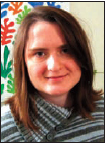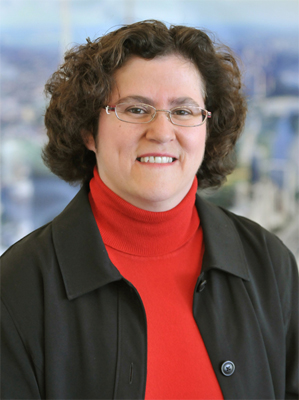by Tina Henne (CEPA), Postdoctoral Coordinator and
Giselle Sandi-Tapia (CSE), Chemist
This article has been re-posted from the Minority Postdoc Blog. It can be found here.
When Giselle Sandi-Tapia stepped off the bus for her first day of undergraduate schooling at the University of Costa Rica, she was met with an unfamiliar world. The community of 40,000 students was much different than that of the small, farming community where she was raised. As the first person in her family to go to college, Giselle faced additional challenges beyond attending class and studying hard. She had to learn how to navigate the academic seas, define her career path, and maintain eligibility for the scholarship that allowed her family to support her dream of pursuing higher education. Luckily, she found trusted mentors to help her through these challenges and is now a Ph.D. Chemist at Argonne National Laboratory, near Chicago, IL, where she has been working in both research and education for almost 20 years.
Giselle’s story is all too familiar for first generation (FG) scholars. Story after story told by FG scholars highlights similar themes: feeling of isolation; uncertainty in how to “fit in” the academic society; not knowing the “rules of the game” that allow one to be successful in college; broken communication with family; overcoming stigmas associated with coming from what are often disadvantaged or blue collar backgrounds. This “invisible” minority of FG scholars is slowly coming into the foreground thanks to researchers like Karri Holley, Associate Professor of Higher Education at the University of Alabama.
While a substantial amount of work has looked at the impacts of being a FG undergraduate student, Karri and her colleague, Susan Gardner, have focused on FG doctoral students and postdoctoral scholars. What they found was that more than a third of Ph.D. recipients identify as FG, with half of African American, Hispanic, and American Indian recognized as FG. In addition to feelings of not belonging, most FG scholars note family finances, gender stereotypes, and geographic distance from family as major obstacles to overcome. FG doctoral students are also more likely to take longer to complete their degree and graduate with more debt than non-FG peers.
With proper mentoring and a supportive network, FG scholars can better straddle the two worlds of where they came and that of academia. Some institutions such as the University of California San Francisco are putting programs in place to address the needs of FG scholars. UCSF’s First Generation to College Initiative offers mentoring, networking, and orientation to campus life through planned events and discussion groups. The group uses social media outlets such as Facebook to announce events, reach the target audience and share resources.
Just down the road at California State University-Fresno, President John Welty shared his own story of being a FG scholar and challenged CSU’s faculty and staff to do the same. The CSU-Fresno First Generation Stories Project aims to collect these stories to be used in student support programs. Yet another example that could serve FG scholars, although not the main emphasis, is the University of Tennessee Program for Excellence & Equity in Research (PEER). PEER is a structured program that provides workshops and resources to build professional and communication skills, in addition to connecting cohorts to mentor teams.
These are just a few examples that were discussed at the 2013 National Postdoctoral Association Annual Meeting on March 16th. Giselle, Karri and Kristene Henne presented on these issues in a workshop moderated by Jennifer Hobbs, Director of the Office of Postdoctoral Affairs at Northwestern University and member of the NPA Board of Directors. Regardless of the program, literature source, or testimonial, the main takeaways are that First Generation scholars represent an invisible, often silent class that faces the challenge of straddling two worlds, and that mentoring initiatives are major forces in helping them successfully navigate these two worlds.
 Kristene (Tina) Henne (CEPA) is the Postdoctoral Program Coordinator at Argonne National Laboratory. She received her Ph.D. in Biological Sciences from Purdue University and is a first generation scholar. She came to Argonne as a Postdoctoral Appointee in 2009 and has been in her current position since 2011.
Kristene (Tina) Henne (CEPA) is the Postdoctoral Program Coordinator at Argonne National Laboratory. She received her Ph.D. in Biological Sciences from Purdue University and is a first generation scholar. She came to Argonne as a Postdoctoral Appointee in 2009 and has been in her current position since 2011.
 Giselle Sandi-Tapia (CSE) is a Scientist in the Chemical Sciences and Engineering Division at Argonne National Laboratory, a former postdoctoral fellow at the Chemistry Division at Argonne, a Ph.D. graduate of Northern Illinois University, and an alumnus of the University of Costa Rica.
Giselle Sandi-Tapia (CSE) is a Scientist in the Chemical Sciences and Engineering Division at Argonne National Laboratory, a former postdoctoral fellow at the Chemistry Division at Argonne, a Ph.D. graduate of Northern Illinois University, and an alumnus of the University of Costa Rica.

